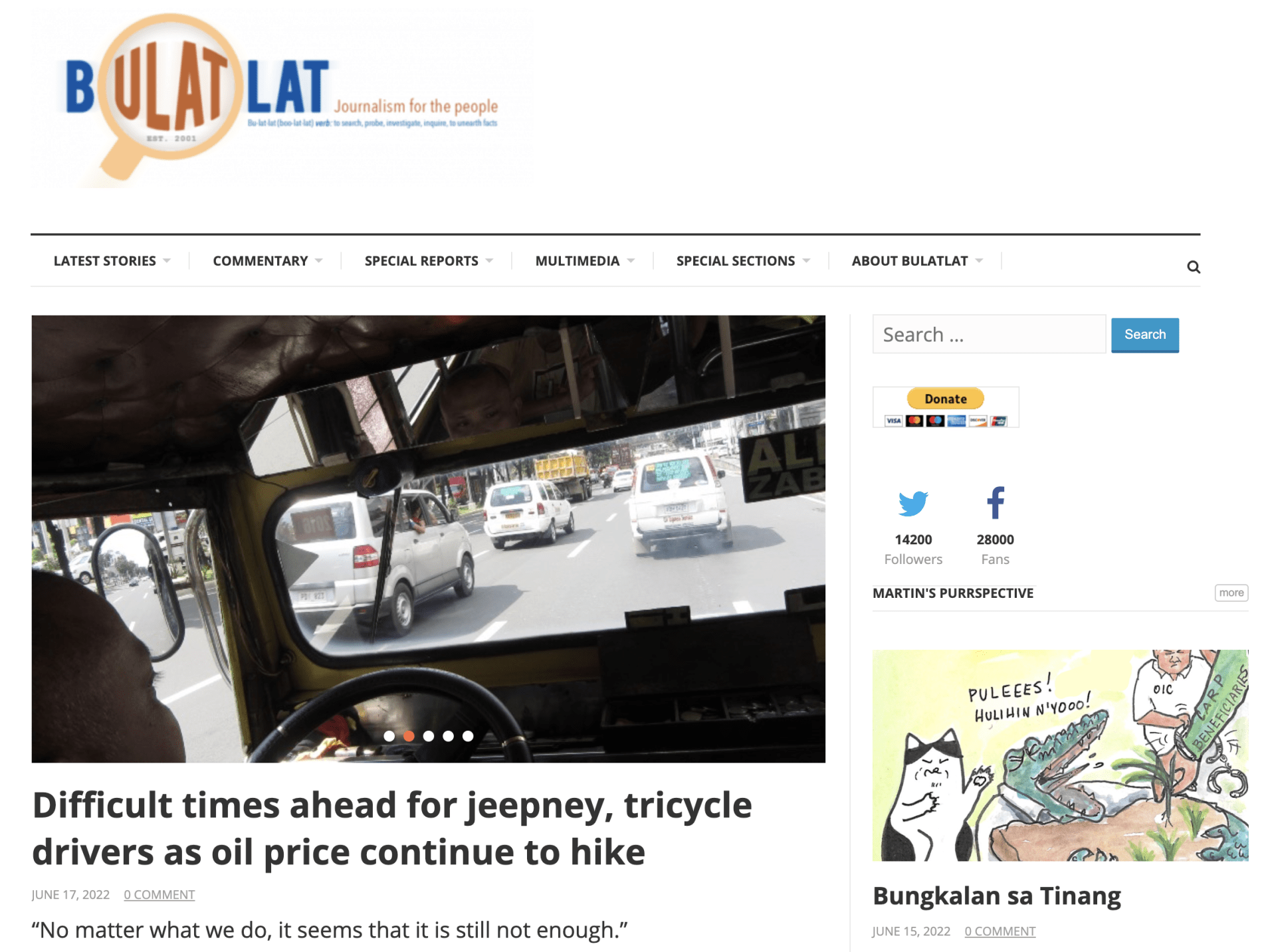Philippine Media groups decried a government order this week to block several websites, including those of independent media, “found to be affiliated to and are supporting terrorist and terrorist organizations.”
“Blocking access to these websites leave a gap in discourse and in the flow of information and highlights the threats posed by the Anti-Terrorism Act on the freedom of expression and on freedom of the press,” read a statement by the National Union of Journalists in the Philippines.
The group called on the National Telecommunications Commission (NTC) and the National Security Council to reconsider the inclusion of the media groups in the list.
In an order dated June 8, NTC commissioner Gamaliel Cordoba “directed” internet service providers “to effect the immediate blocking of the reported websites found to be affiliated to and are supporting terrorists and terrorist organizations.”
The order was reportedly made upon the request of National Security Advisor Hermogenes Esperon who requested the NTC to order the blocking of 26 websites “affiliated to and are supporting” designated terrorists and terrorist groups including the Communist Party of the Philippines, its armed wing, the New People’s Army, and the National Democratic Front of the Philippines.
In his letter to Cordoba, Esperon said the alleged “terror groups” have established “a pervasive online presence through their websites that they continually use to publish propaganda and misinformation campaigns in order to malign the Philippine government, recruit new members, and to solicit funds from local and international sources.”
The list of websites includes activist groups and independent media organizations, such as Bulatlat and Pinoy Weekly.
In a statement, Human Rights Watch said the blocking of media and civil society websites “is yet another dimension to the government’s outrageous, rights abusing efforts to red-tag and harass civil society actors, including journalists and activists.”
“This is nothing less than a brazen attempt to undermine them and censor these media outlets and groups,” said Phil Robertson, deputy Asia director of Human Rights Watch.
He said that what’s “astonishing is how easily the government escalates its defamatory rhetoric, moving from red-tagging them to classifying them as terrorists, in effect terrorist-tagging them.”
“But the bottom line is the government has offered no solid evidence whatsoever to back up its claims that these groups work with the communists, let alone are preparing to bear arms against the government,” he said.
In a statement, Altermidya Network demanded that the NTC reverse its order blocking the news sites as it denounced the “act of stifling the people’s freedom and rights with such arbitrary claims.”
“The biggest threat to democracy right now is not those unjustly labelled ‘terrorists’ for reporting the truth based on facts, but state agents like Esperon and the National Security Council who spew lies and disinformation to justify political repression,” read the statement.
It called on media outfits and press freedom advocates to rally on and resist the State’s efforts to silence independent media and state critics.
In a Twitter post, Bulatlat said it was “surprised and enraged” upon knowing the order, which it described as a ”brazen violation of our right to publish, and of the public’s right to free press and free expression.”
“This is prior restraint against protected speech. It is downright unacceptable as it is based on Esperon’s mere hearsay,” added the group’s tweet.
“We raise the alarm that such arbitrary action sets a dangerous precedent for independent journalism in the Philippines,” it said.
